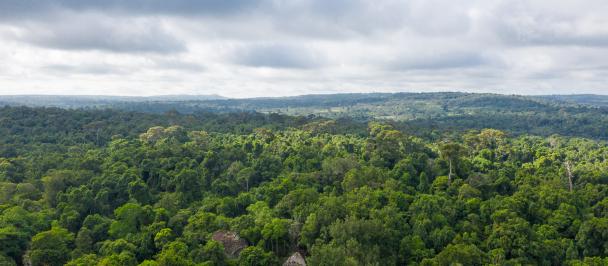Remarks by Alissar Chaker, UNDP Resident Representative
"The Development of a Transformative NDC3.0: Goal Setting and Strengthening the Inclusive Approach” Workshop
March 12, 2025
Excellency CHUOP Paris, Secretary of State and CCTWG Chair, Ministry of Environment,
Mr. Benjamin Moreau, Deputy Representative, Office of the UN High Commissioner for Human Rights,
Distinguished Members of the Climate Change Technical Working Group, Development Partners, UN Colleagues, and Esteemed Participants.
It is my great pleasure to welcome you with the Ministry of Environment to today’s workshop on “The Development of a Transformative Nationally Determined Contributions or NDC3.0” and hope the information and tools that will be shared answer your questions and guide your work on the new NDC development process over the coming months.
Needless to preach the importance of preparing and submitting the NDCs to the converted. The NDCs ensure that climate action is built into every sector to mitigate domestic greenhouse gas emissions, contributing to adaptation and protecting communities from the local impacts of air pollution and climate change, and identifying access to potential climate finance, carbon markets and green/ responsible trade requirements.
Excellencies and Distinguished Guests.
Climate change is a global challenge with severe local impacts. We cannot drop the ball! This year marks a critical moment in our collective fight against climate change as we celebrate the 10th anniversary of the Paris Agreement. Countries will submit the third generation of NDCs that outline their sovereign commitments to climate action ahead of COP30 in Brazil this coming November. In this regard, the United Nations in Cambodia has come together with joint support to the Royal Government of Cambodia, represented by the Ministry of Environment, for raising the ambition, accelerating implementation, and ensuring the inclusiveness of the revised NDC 3.0. UNDP is coordinating the process on behalf of the UN, leveraging its existing Climate Promise infrastructure and long-standing expertise in supporting countries in the development and implementation of a forward-looking climate agenda. The UNDP Climate Promise supported 85% of all developing countries during the second NDC revision cycle of 2019-2021. Cambodia’s updated NDCs submitted to UNFCCC in 2020 were commended for their gender and youth inclusion.
It is encouraging that other development partners have also answered the call and are teaming up—a great sign of partnership and commitment to impact!
Excellencies and Distinguished Guests.
The NDCs update is a process of continuous improvement. For this purpose, UNDP and partners developed several tools and resources globally to facilitate the improvement of target setting, reporting and inclusiveness of the process. These include, to cite a few, the NDC Quality Assurance Checklist, the NDC Guidance Note for Strengthening Inclusive Approaches, the Gender Responsive and Socially Inclusive NDC Implementation Checklist, the NDC Cost-Benefit Analysis, and the On Equal Terms Checklist for youth-inclusiveness.
Locally, UNDP in Cambodia supported the development of the NDC Tracking Tool and Climate Change Portal linked to the National Council for Sustainable Development’s (NCSD) website as a one-stop shop for NDC reporting for sectoral ministries. It also recently published a report and roadmap for the meaningful engagement of young people in the ongoing NDC 3.0 development process.
Excellencies and Distinguished Guests.
In addition to increasing the country’s ambition in line with the 1.5 degree Celsius pathway of the Paris Agreement and accelerating implementation through access to and alignment of public, private, international, and national finance and technical support, the NDCs 3.0 will also strengthen a whole-of-society approach through meaningful and long-term engagement with underrepresented groups for better inclusiveness.
Today, the focus is on providing you with the needed information to enhance NDC inclusiveness using the Toolkit on “Integrating Human Rights in Nationally Determined Contributions,” developed for Practitioners by the Office of the High Commissioner for Human Rights (OHCHR).
Your role as members of the Climate Change Technical Working Group (CCTWG) is crucial in proposing, consulting on, and validating proposed measures for accelerating the national climate action and building a more resilient economy and society. This requires a comprehensive understanding of NDCs, familiarity with key requirements such as scenario modeling, target and indicator setting, MRV (Measurement, Reporting, and Verification), financing and building societal ownership, leaving no one behind.
As such, I hope today’s session will be a useful refresher for developing a more inclusive NDC in line with the Pentagonal Strategy, the Long-Term Strategy for Carbon Neutrality, the Circular Strategy on Environment 2023-2028, and the Climate Change Strategic Plan 2024-2033.
We look forward to successfully completing the NDC formulation together by June 2025, aiming for the Cambodia NDC to once more serve as a good example for other countries.
I wish you a productive continuation!
Som Arkun

 Locations
Locations



